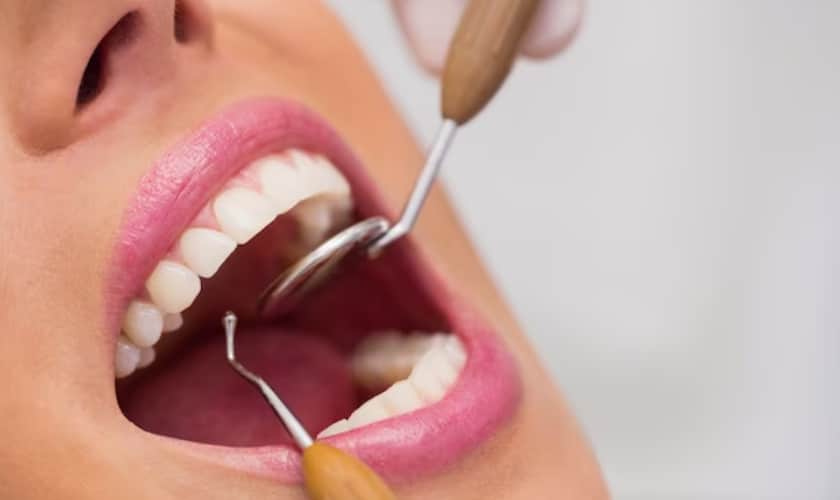A stunning smile can light up a room and boost your confidence. Dental veneers offer an excellent solution for achieving a perfect set of pearly whites. But, like any investment, you want to ensure your dental veneers last as long as possible. In this blog post, we share five essential tips for maintaining the longevity of your dental veneers so that you can confidently flash those beautiful teeth for years to come!
Introduction to Dental Veneers
Dental veneers are a popular choice for people looking to improve the appearance of their smile. With a porcelain or composite resin, veneers are thin shells bonded to the front of your teeth. Veneers can correct cosmetic concerns, including tooth discoloration, chips, and cracks.
While dental veneers are durable and long-lasting, they are not indestructible. With proper care and maintenance, your veneers can last for many years. Here are a few tips to help you keep your veneers looking their best:
- Brush and floss regularly. Good oral hygiene is essential for all types of dental work, including veneers. Be sure to brush twice daily with a soft-bristled toothbrush and fluoride toothpaste. Floss daily to remove plaque and food particles from between your teeth.
- See your dentist regularly. It’s important to see your dentist every six months for a professional cleaning and checkup. During these appointments, your dentist will check for any signs of wear or damage to your veneers.
- Avoid habits that can damage your teeth. Chewing on hard objects (ice, pencils, etc.), clenching or grinding your teeth, and using tobacco products can all damage your dental work. If you have any of these habits, talk to your dentist about ways to break them.
Tip 1: Regularly Visit Your Dentist
It’s important to visit your dentist regularly, even if you have dental veneers. Your dentist can help ensure your veneers are in good shape and catch any problems early.
Tip 2: Avoid Chewing Hard Objects
When you have dental veneers, avoiding chewing hard objects is important. It can include hard candy, ice, and even nuts. While you may not think twice about chewing these things normally, they can damage your veneers.
Chewing hard objects can cause your veneers to chip or crack. Even if the veneers don’t completely break, the force of chewing can damage the bond between the veneer and your tooth. Once the bond is damaged, your veneer will likely come loose or fall off entirely.
If you do need to chew something hard, be sure to do it slowly and carefully. Biting into hard objects too quickly can also cause damage. If you’re unsure whether something is safe to chew, ask your dentist before taking a bite.
Tip 3: Brush and Floss Daily
It’s important to brush and floss your teeth daily, even if you have dental veneers. Plaque and tartar can build up on your teeth, even around the edges of your veneers, and cause gum disease. Gum disease can lead to tooth loss, so keeping your gums healthy is essential.
Tip 4: Have Regular Checkups
It is important to have regular checkups with your dentist to ensure the longevity of your dental veneers. Your dentist can check for wear and tear and ensure they are still in good condition. They can also make adjustments or repairs if necessary.
Tip 5: Wear a Mouthguard When Playing Sports or Doing Other Activities
Mouthguards are an important protective gear for anyone participating in a sport or activity with a risk of impact to the face. Wearing a mouthguard can help to reduce the risk of damage to the teeth, gums, and jaw. Many different types of mouthguards are available, so choosing one that is comfortable and fits well is important.
There are three main types of mouthguards:
- Stock mouthguards – these are pre-formed and ready to wear. They are typically not as comfortable or effective as other types of mouthguards.
- Boil-and-bite mouthguards are made from a thermoplastic material that becomes soft when heated in water. Once softened, the material is placed over the teeth and shaped to fit using finger pressure or biting down. These mouthguards provide a better fit than stock but may still be uncomfortable for some users.
- Custom-fitted mouthguards are made from impressions of the teeth used to create a model. The model is then used to create a custom-fitted guard to provide the best fit, comfort, and protection. Custom-fitted mouthguards can be more expensive than other types but offer users the best protection and comfort.
Conclusion
Dental veneers are a great way to improve the look of your teeth and smile. With proper care, they can last for many years. We have provided five tips that you should consider when trying to ensure the longevity of dental veneers. From regular checkups with your dentist to avoid certain foods that may damage the veneers, these tips will help you keep your smile looking its best!

